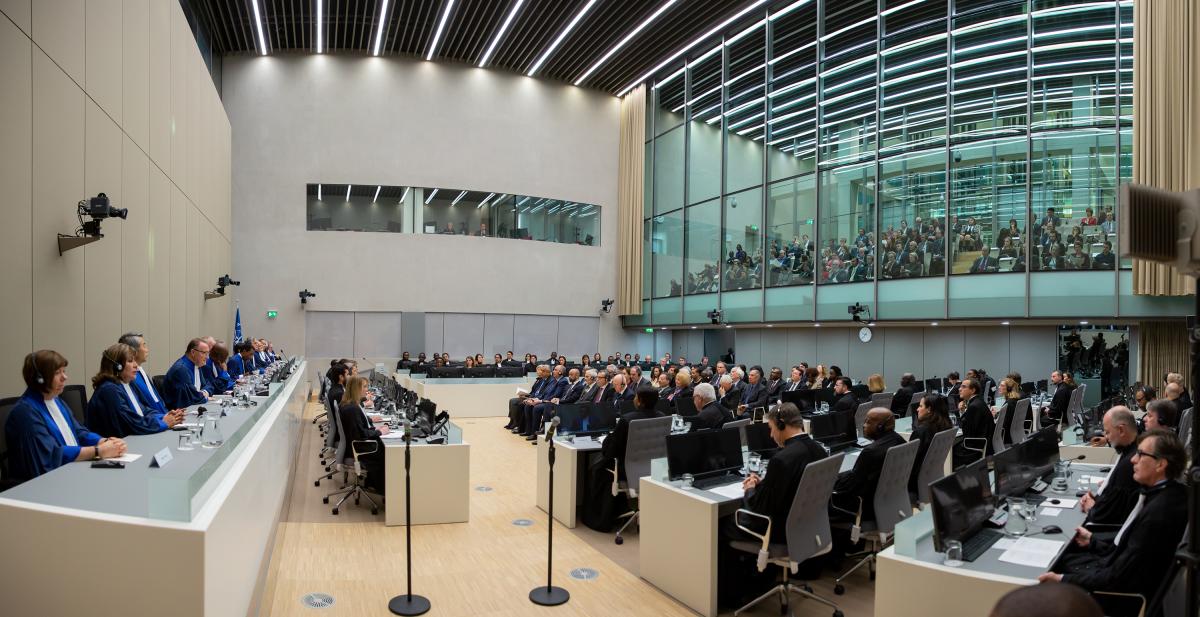International Criminal Court Marks Opening of the Judicial Year 2019

On 18 January 2019, the International Criminal Court ("ICC" or "Court") marked the opening of its judicial year with a Special Session at the seat of the Court in The Hague, Netherlands. The event gathered senior judges representing national jurisdictions as well as regional or international courts, and members of the diplomatic corps, civil society and international organisations.
In his opening remarks, the President of the Court, Judge Chile Eboe-Osuji, reflected on accountability as the Court's defining mandate. "[A]ccountability means first and foremost an assurance that no one is above the law. The dispensation of accountability requires everyone – regardless of stature – to answer questions in the manner of reasonably founded allegations of wrongdoing made against them. And the exercise engages the due process of a transparent and fair trial", President Eboe-Osuji said, underlining the important roles that all the various operators in the courtroom – the Prosecutor, Defence Counsel, Counsel for Victims, and the Judges – have in the exercise of accountability. He further observed that the Rome Statute does not require a particular outcome to be reached at the end of the process, adding that it is incorrect to take the view that the Prosecutor or the Defence Counsel have succeeded or failed if any particular outcome is not reached.
In her remarks, ICC Prosecutor Fatou Bensouda stressed the importance of the Court to a rules-based global order and the fight against impunity for atrocity crimes, and reaffirmed her Office's commitment to its mandate and to advancing the goals of the Rome Statute notwithstanding challenges. She emphasised that "[a]ll of us, as officers of this Court, whether as judges, prosecutors, defence counsel, legal representatives of victims, or duty counsel, play a crucial role as indispensable parts of the Rome Statute system and shoulder great responsibilities. The stakes and expectations are high. There is no room for error. We must apply the letter and the spirit of the law conscientiously." She added that "the Court must stand tall as a beacon of hope and as a critical pillar of effective justice in response to atrocity crimes" before concluding that she, along with her team, join colleagues "from the other organs and independent counsel, in the spirit of collegiality, as we fulfil our mandate under the Rome Statute, each within our respective roles."
"Because of the vital work the Registry undertakes we who work in the Registry are acutely conscious that what we do as individuals makes a real difference and we must therefore be diligent, give our best, treat everyone with respect and continuously improve," stated ICC Registrar Peter Lewis.
"The International Criminal Court Bar Association strongly reaffirms our unwavering support for the universal values enshrined in the Rome Statute, including the right to fair and expeditious proceedings," said Chief Charles Taku, President of the International Criminal Court Bar Association. "While we do not know what lies ahead in the future, we need to keep thinking ahead to strengthen and empower the ICC of tomorrow."
The Special Session was followed by a Judicial Seminar to allow a critical reflection on the international criminal justice system after the 20th Anniversary of the Rome Statute, including on the role of the judicial profession in addressing the challenges and on the effectiveness of responses to mass atrocities.
Audio-Visual materials:
For further information, please contact Fadi El Abdallah, Spokesperson and Head of Public Affairs Unit, International Criminal Court, by telephone at: +31 (0)70 515-9152 or +31 (0)6 46448938 or by e-mail at: [email protected]
You can also follow the Court's activities on Twitter, Facebook, Tumblr, YouTube, Instagram and Flickr